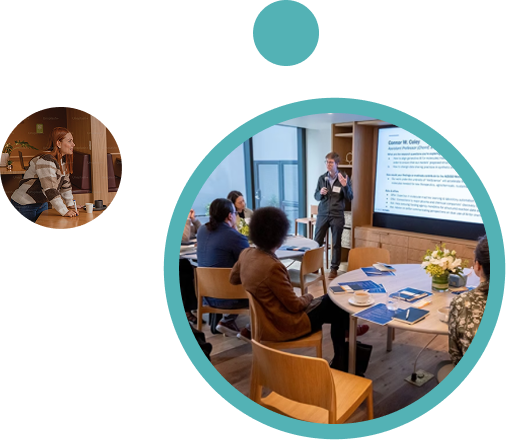Bijun Tang
Dr. Bijun Tang is currently a Presidential Postdoctoral Fellow at the School of Materials Science and Engineering (MSE) at Nanyang Technological University (NTU), Singapore. She received her bachelor’s degree with First Class Honours and her PhD from NTU MSE in 2017 and 2021, respectively. In 2023, she joined Rice University as a visiting scientist, working with Prof. Pulickel Ajayan. Dr Tang’s research interests primarily lie in the synthesis and engineering of novel 2D materials as well as intelligent materials development with machine learning. She has published over 40 peer-reviewed papers in top-tier journals, including Nature, Nat. Mater., Nat. Electron., Nat. Synth., Nat. Commu., Adv. Mater., Mater. Today, etc., with an H-index of 21 and over 1900 citations. Dr. Tang has (co-)chaired several significant research grants from NTU, AI Singapore, ANR France, and Schmidt Sciences, with total funding exceeding S$6 million. Her accolades include the AI2050 Early Career Fellow, Forbes 30 Under 30 Asia, NTU Emerging Scientist, NTU Presidential Postdoctoral Fellowship, NTU Graduate College Interdisciplinary Research Award, as well as Women in Engineering, Science, and Technology (WiEST) Development Grant. Dr. Tang also serves as a youth editorial member for International Journal of AI for Materials and Design.
AI2050 Project
The 2DMatAgent project aims to develop an AI-powered platform that accelerates the discovery and development of 2D materials, which are critical for advancing nanoelectronics, energy storage, and healthcare. Traditional methods for developing these materials are slow and resource-intensive, often taking decades. 2DMatAgent will autonomously design, validate, and optimize 2D materials, dramatically reducing this time to days. By integrating advanced AI techniques like large multimodal models, reasoning, and tool automation, the project will empower researchers across fields and industries, pushing the boundaries of science and driving breakthroughs in sustainable energy, electronics, and other key technologies.
Presidential Postdoctoral Fellow, Nanyang Technological University
Hard ProblemGreat Opportunities


